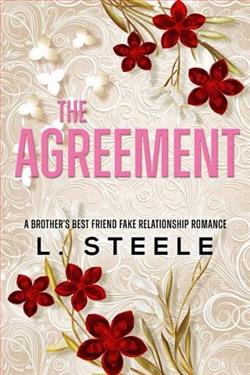Page 37 of South of Nowhere
Nearly silent, except for the faintest sound of streaming water above the car.
And a drip from somewhere.
The panic was starting. The fucking CO2was filling George’s lungs. His skin crawled and his muscles were cramping from not getting enough of the magic O.
Hands shaking and sweating. Gagging.
He gazed down and stared at the pill bottle on the floor. Empty.
He had wanted to make sure there was enough for Sonja and the children. To take them away from the horrors they were experiencing.
But that meant no pills for him.
He was—he reflected with giddy irony—keenly drowsy. Meaning his thoughts arose and then petered out, following his consciousness somewhere, who knew where. But when he was alert, it was like a knife in his heart.
If only they had left the rest stop a bit sooner—that was on him. He’d wanted to use the toilet, even though he probably didn’t need to. He could have waited.
If Kim had not debated the extra sixty seconds about what additions to get to her flavored coffee at Starbucks.
If he’d set the alarm to awaken five minutes earlier or later.
They would not have been on the damn levee at just that moment. Kim had sighed right before it happened.
6:14…
But why even bother to…
He lost his thought.
Ah.
Wait. It came back: But why even bother to speculate. Historians called it counterfactual. A fancy name for alternative history. If the Treaty of Versailles had been more generous to the Germans…
Where was this going?
Fate had led them here, and fate had killed them all.
And why was that so appalling, even remarkable?
In every compelling story—real or fictional—there has to be death, or its possible appearance. It’s what keeps us humans forging ahead to survive in real life and keeps readers turning pages, praying that the author will not betray them and snatch away a beloved character.
And if death does arrive, it engenders anger and resolve and motivation to find who is responsible and, in the end, cobble together some justice.
Or an opportunity to reflect on what the deceased’s life was all about.
George Garvey could write a book about death.
He kissed the motionless head of his wife and those of his two children, noting—just beyond the scent of gasoline and body odor and nail polish the distinctive odor of each. Different variations in soaps, shampoos and hair spray. He could differentiate them in the dark from these alone, though of course, he knew this from their positions where they lay, in stillness, in their coffin.
To Kim he thought, I’m so sorry, honey. I said what I said because I love you.
And he told himself: Well, get to it.
George clambered over the second row of seats—the third was folded down to make the storage area in the rear larger.
Boxes, clothes, food, a six-pack. He pulled off a can, cracked the tab and gulped down the warm Coors.
Why not?















